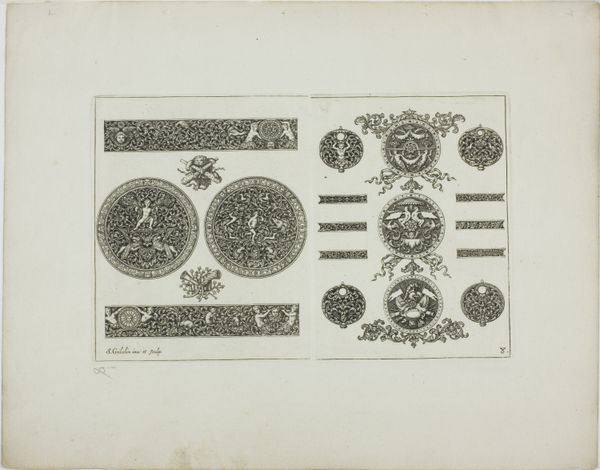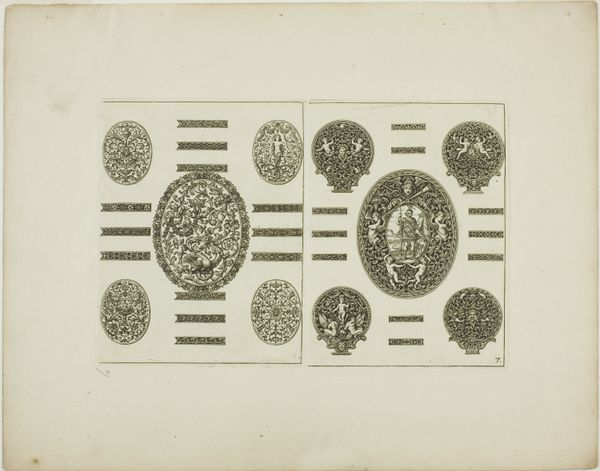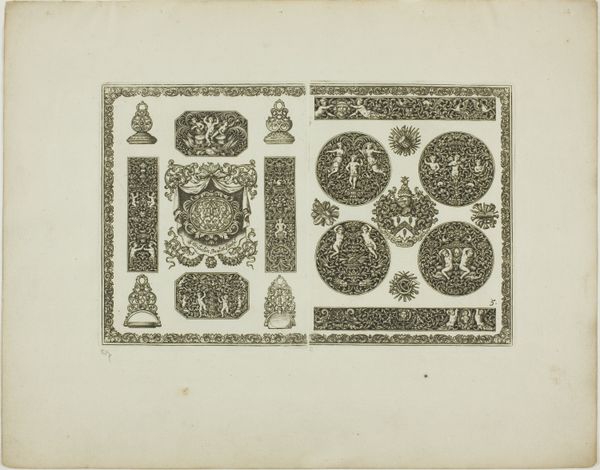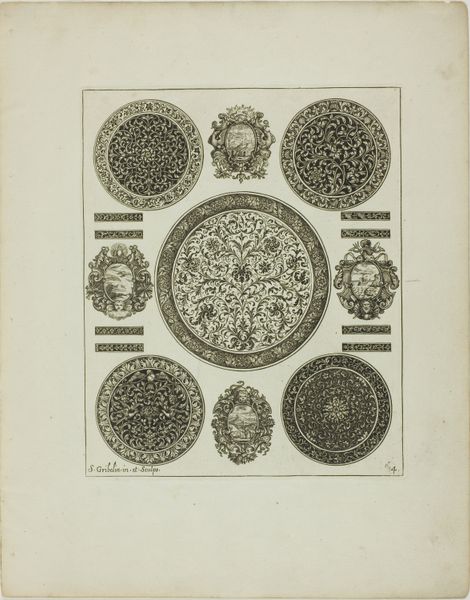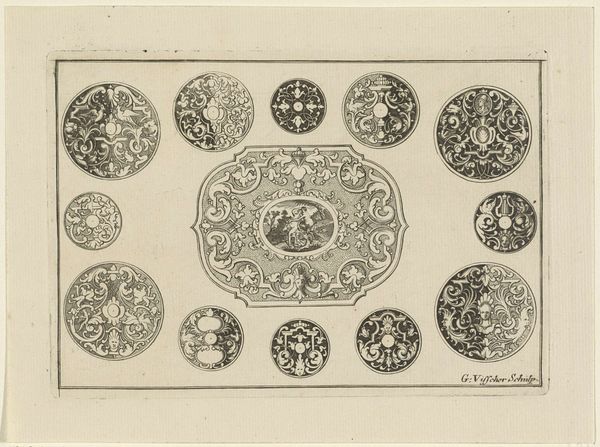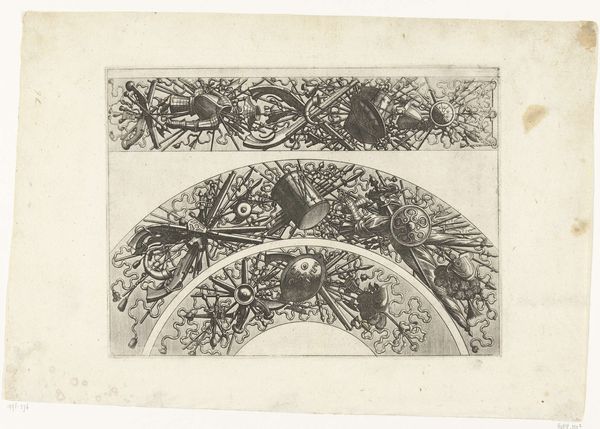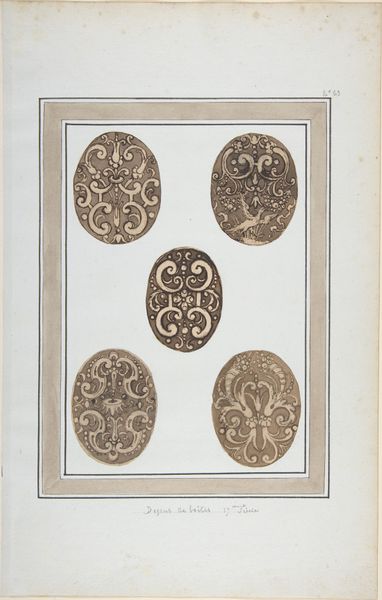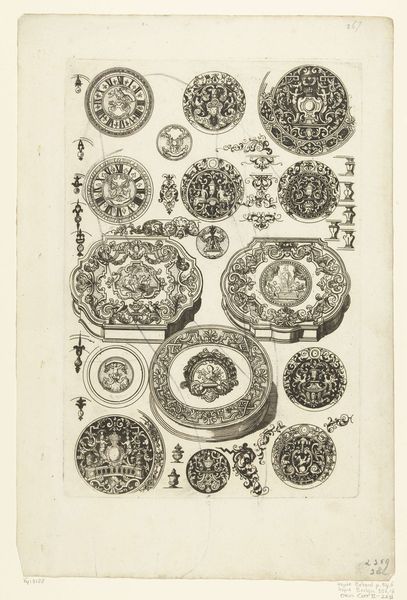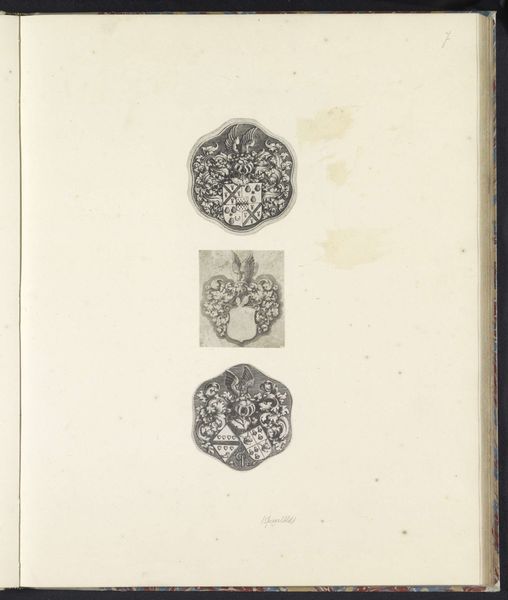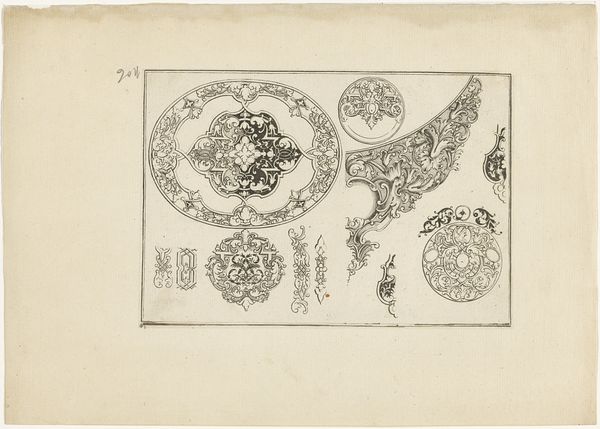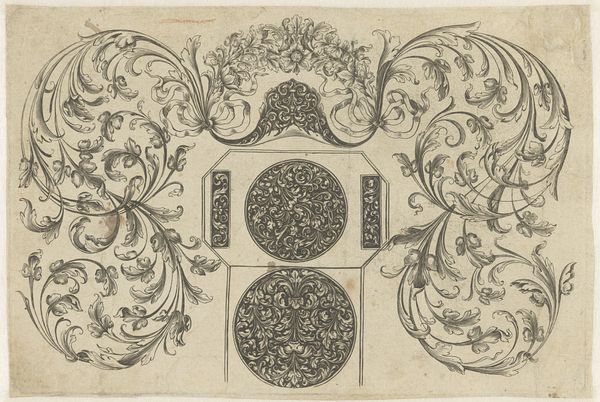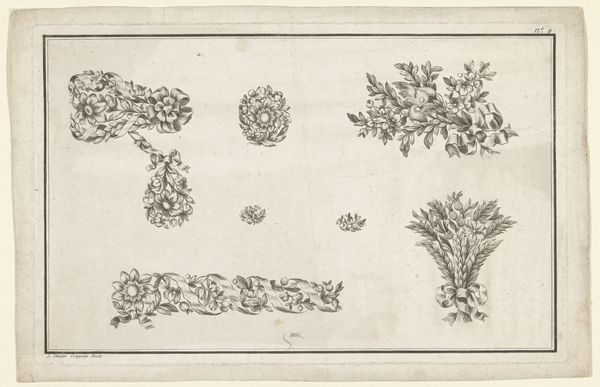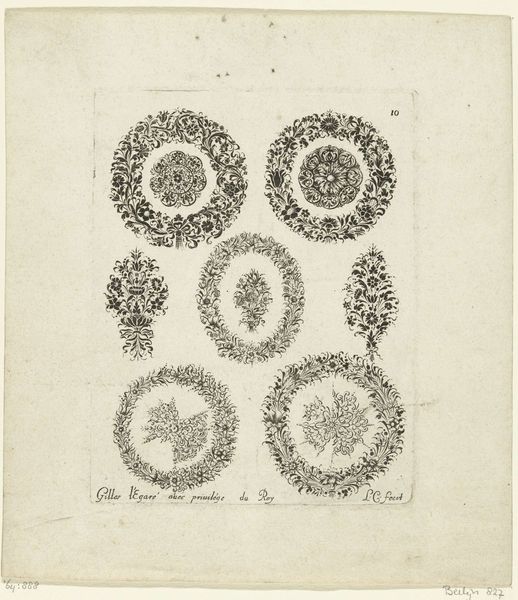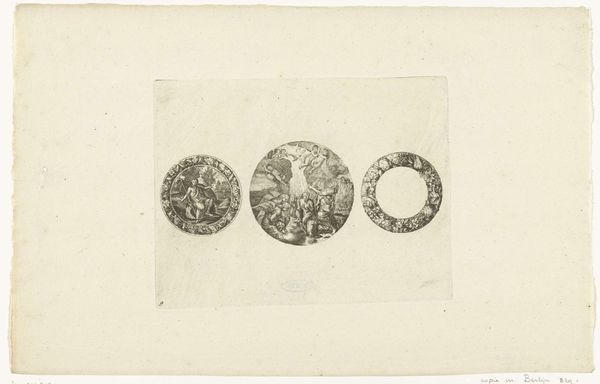
drawing, print, etching, paper, engraving
#
drawing
#
baroque
# print
#
etching
#
paper
#
form
#
line
#
decorative-art
#
engraving
Dimensions: 132 × 213 mm (image/plate); 233 × 296 mm (sheet)
Copyright: Public Domain
Simon Gribelin II created Plate Six from his Book of Ornament. Notice the cherubs, vases, and foliate scrolls densely packed into circular medallions and friezes. These motifs, ubiquitous in the late 17th century, are a re-emergence of classical antiquity, reflecting the era's fascination with the grace and perceived order of the ancient world. The cherub, or putto, in particular, can be traced back to Hellenistic art, representing love, innocence, and divine presence. These figures have morphed over centuries, appearing in Renaissance paintings, and even in the Baroque exuberance of Bernini's sculptures. They tap into the collective psyche, evoking feelings of nostalgia and longing for a lost innocence. Even the vases, central to these compositions, are more than mere containers. They are symbols of abundance, vessels of life, reminiscent of ancient amphorae used in sacred rituals. The image, therefore, becomes a powerful synthesis of historical and cultural memory, revealing how symbols transcend time, continually reinventing themselves to speak to new generations.
Comments
No comments
Be the first to comment and join the conversation on the ultimate creative platform.
